Giving an empty wallet as a gift is often considered bad luck in various cultures and superstitions. Presenting someone with an empty wallet may symbolize financial hardship or lack of prosperity, which can be seen as inauspicious or unlucky. In many traditions, it is believed that a wallet should always contain money or a token amount to ensure prosperity and abundance for the recipient. To avoid potential negative connotations, it is advisable to ensure that a wallet given as a gift contains at least a small amount of money or a symbolic token, signifying positive intentions and blessings for the recipient.
Exploring the Cultural Beliefs and Superstitions Surrounding Giving an Empty Wallet as a Gift
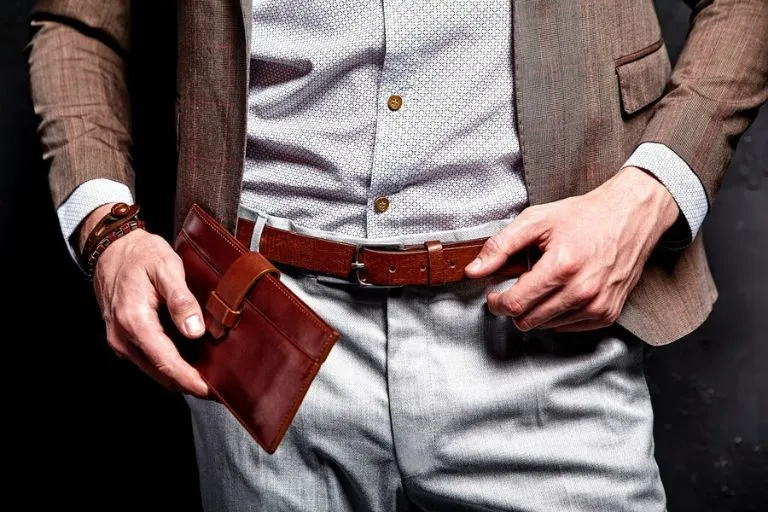
In this introduction, we define the topic of exploring cultural beliefs and superstitions related to giving an empty wallet as a gift. Presenting a wallet devoid of money or contents carries significant symbolic weight in various cultures worldwide. By delving into these beliefs, we aim to uncover the reasons behind the perceived superstitions and understand the cultural nuances of this practice. The term wallet as a gift encapsulates the central focus of our investigation into the symbolic meanings and interpretations surrounding this intriguing gift-giving tradition.
Importance of Understanding the Symbolism Behind Gift-Giving Traditions
Understanding the symbolism behind gift-giving traditions involving wallets is crucial for appreciating the cultural significance attached to such practices. Gift-giving is often deeply rooted in symbolism, reflecting a society’s values, beliefs, and sentiments. By examining the importance of presenting a wallet as a gift, we gain insights into broader cultural attitudes toward wealth, prosperity, and fortune. This understanding allows us to navigate cultural exchanges respectfully and avoid inadvertently causing offense or misunderstanding. By acknowledging the importance of symbolism in gift-giving, we recognize the nuanced meanings associated with the wallet as a gift phenomenon and its impact on social interactions and traditions.
Is it OK to give a wallet as a gift?
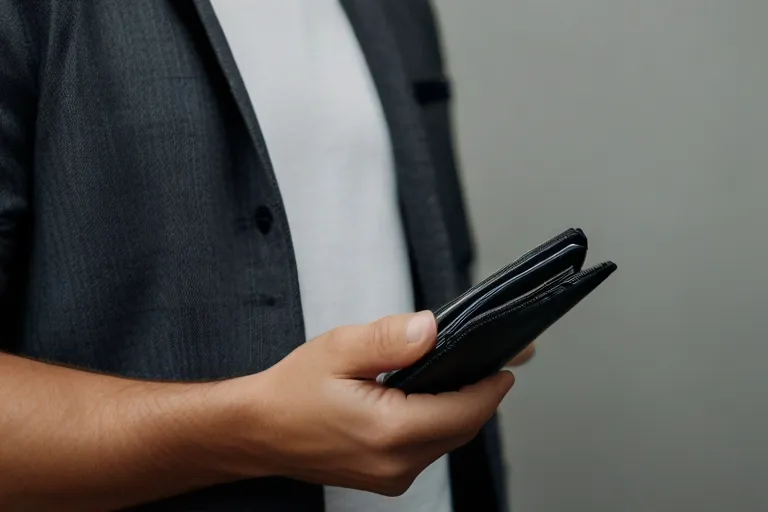
Giving a wallet as a gift can be a thoughtful and practical gesture, but it’s important to consider various factors before making this choice.
1. Consider the Recipient’s Preferences Before deciding to give a wallet as a gift, consider whether the recipient would appreciate and use a new wallet. Some individuals may have specific preferences for wallet styles, sizes, or materials. Ensuring that the wallet aligns with the recipient’s tastes and needs is important.
2. Personalization: Adding a personal touch to the wallet can make the gift more meaningful. Consider engraving the recipient’s initials or adding a personalized message to show thoughtfulness and care. Personalization enhances the sentiment behind the gift and makes it unique to the recipient.
3. Quality and Durability: Choose a durable, functional, high-quality wallet. A well-crafted wallet made from quality materials will likely be appreciated and valued by the recipient. Opt for a design that suits the recipient’s lifestyle and daily use.
4. Avoid Superstitions: Be mindful of cultural beliefs and superstitions associated with giving wallets as gifts. In some cultures, presenting an empty wallet is considered bad luck. To avoid negative connotations, ensure that the wallet contains a small amount of money or a symbolic token when given as a gift.
5. Thoughtful Presentation: Present the wallet thoughtfully and respectfully. Consider the occasion and the relationship between you and the recipient. Express genuine sentiments when giving the wallet and explain why you chose this particular gift for them.
What does a wallet symbolize as a gift?
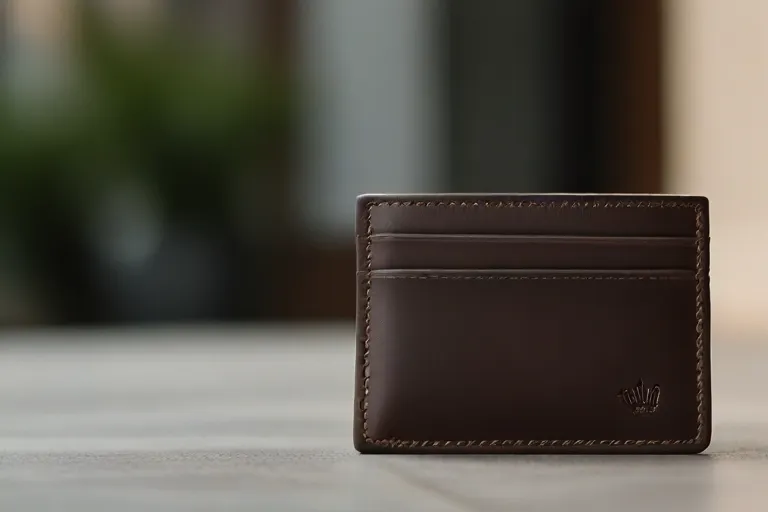
The symbolism of a wallet as a gift can vary depending on cultural context and personal interpretation. Generally, a wallet symbolizes practicality, financial well-being, and prosperity. When someone gives a wallet as a gift, they may convey wishes for the recipient to have good fortune, success, and financial stability. Presenting a wallet can also represent a gesture of generosity and care, as wallets are essential items used daily to hold money and important belongings.
Is a wallet a good gift idea?
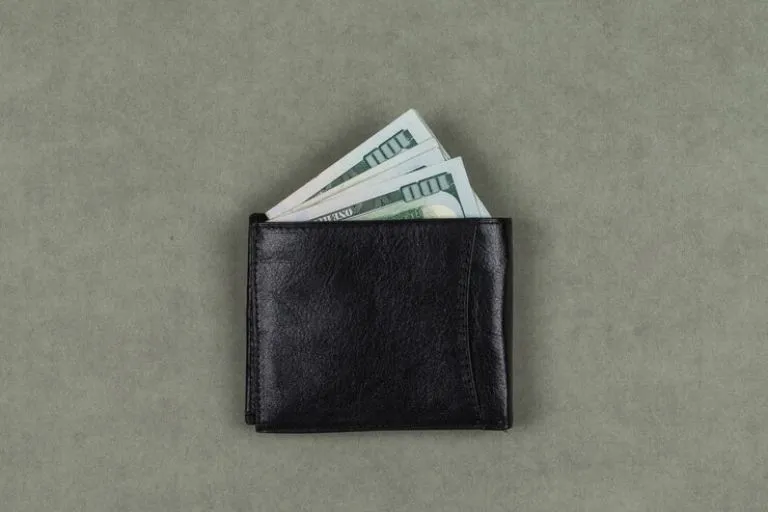
Whether a wallet is a good gift idea depends on several factors, including the recipient’s preferences, the occasion, and the relationship between the giver and the recipient.
Here are some considerations to determine if a wallet is a good gift idea:
- Practicality: Wallets are practical gifts that serve a functional purpose. If the recipient needs a new wallet or appreciates practical gifts, a wallet can be a thoughtful choice.
- Usefulness: Consider whether the recipient would use and benefit from a new wallet. If they frequently carry a wallet and their current one is worn out or outdated, a new wallet can be a welcomed and useful gift.
- Personalization: Adding a personal touch, such as engraving initials or selecting a wallet in their favorite color or style, can enhance the sentimental value of the gift.
- Relationship: Consider the nature of your relationship with the recipient. A wallet can be a suitable gift for a family member, close friend, or colleague, especially if you know their tastes and preferences well.
- Occasion: A wallet can be a practical and appropriate gift for various occasions, such as birthdays, graduations, promotions, or holidays. It’s important to match the gift to the occasion and ensure it aligns with the recipient’s needs and interests.
- Cultural Considerations: Be mindful of cultural beliefs or superstitions associated with giving wallets as gifts in certain cultures. In some traditions, giving an empty wallet may be considered bad luck, so it’s important to avoid potential taboos.
What can I put in a wallet as a gift?

When giving a wallet as a gift, you can include several items to enhance its presentation and usefulness. Here are some suggestions on what you can put in a wallet as a gift:
- Cash: Adding a small amount of money inside the wallet can be a symbolic gesture of prosperity and good fortune. It also ensures that the wallet is not empty when presented as a gift.
- Gift Cards: Include a gift card to the recipient’s favorite store, restaurant, or online retailer. This adds value to the gift and allows the recipient to treat themselves to something special.
- Personal Note: Write a heartfelt note or message to the recipient and tuck it inside the wallet. This adds a personal touch and conveys your best wishes and sentiments.
- Photos: Place a few small photos inside the wallet, such as pictures of loved ones or memorable moments. This adds a sentimental touch and makes the wallet feel more personal.
- ID Holder or Card Sleeve: If the wallet has additional compartments or card slots, you can include a slim ID holder or card sleeve for convenience.
- Lucky Charm or Token: Include a small lucky charm, such as a keychain or trinket, to bring good luck and positivity to the recipient.
- Emergency Contact Information: Write down important emergency contact numbers or information and place it inside the wallet for safety.
- Travel-Sized Toiletries: For a travel wallet, consider adding travel-sized toiletries like a mini hand sanitizer or lip balm.
- Mini Notebook or Planner: Include a small notebook or planner that fits inside the wallet for jotting down notes or reminders.
- Personalized Gift: Customize the contents based on the recipient’s interests and preferences. For example, include a ticket stub from a memorable event, a small piece of artwork, or a favorite quote.
Historical and Cultural Context of Gift-Giving

Overview of Gift-Giving Practices Across Different Cultures
Gift-giving is a universal practice that varies in customs and significance across diverse cultures. Understanding the historical and cultural context of gift-giving helps contextualize the symbolism of presenting a wallet as a gift. In many societies, gift exchanges are important social rituals, conveying respect, gratitude, and goodwill. Exploring how different cultures approach gift-giving provides valuable insights into the meanings attributed to specific gifts, including wallets.
Significance of Wallets in Various Cultural Contexts and Traditions
The significance of wallets varies across different cultural contexts and traditions. In some cultures, wallets symbolize prosperity, financial security, or spiritual protection. Giving a wallet as a gift can carry deep cultural meanings related to wealth, success, and generosity. Understanding how wallets are perceived and valued within specific cultural frameworks sheds light on why presenting an empty wallet as a gift may be considered taboo or bad luck in certain contexts. By examining the role of wallets in diverse cultural settings, we gain a broader understanding of the wallet as a gift phenomenon and its cultural significance.
The Symbolism of Wallets as Gifts
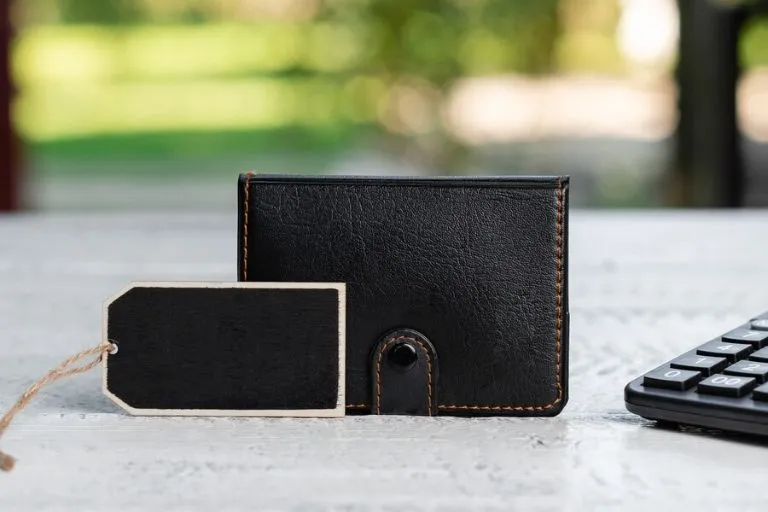
Meaning Behind Giving a Wallet as a Gift
Giving a wallet as a gift holds significant symbolism in many cultures. Wallets are often associated with financial prosperity, success, and the ability to attract wealth. When someone gives a wallet as a gift, it is usually seen as a gesture of bestowing blessings for financial well-being and abundance upon the recipient. Choosing a wallet as a gift reflects the desire to convey wishes for prosperity and good fortune.
Common Beliefs and Superstitions Associated with Giving or Receiving an Empty Wallet
There are widespread beliefs and superstitions surrounding giving or receiving an empty wallet. In many cultures, presenting an empty wallet is considered inauspicious or unlucky, as it symbolizes a lack of financial prosperity or potential financial difficulties. The superstition suggests that an empty wallet may bring the recipient negative energy or economic hardship. Conversely, receiving a wallet with money or a token attracts wealth and positive energy. These common beliefs underscore the importance of considering cultural sensitivities and symbolic meanings when giving or receiving wallets as gifts. Understanding these beliefs enhances our appreciation of the wallet as a gift tradition and its impact on social customs and interactions.
Cultural Perspectives on Empty Wallets
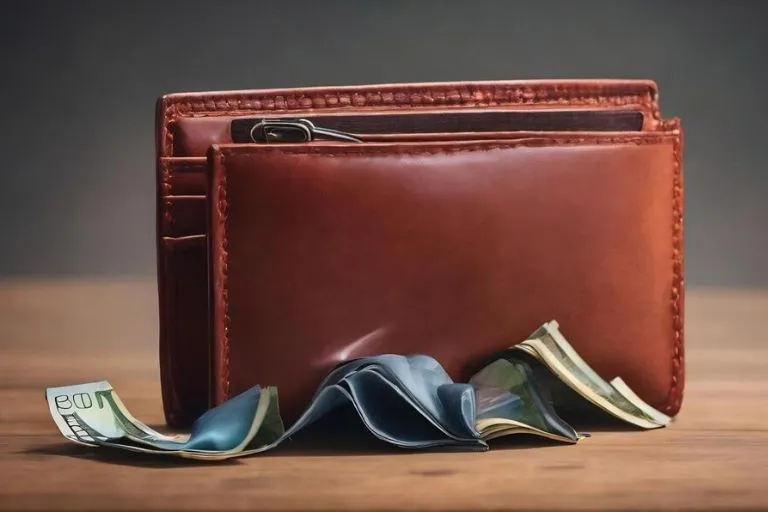
Superstitions Related to Empty Wallets in Specific Cultures
In various cultures worldwide, empty wallets carry specific superstitions and beliefs that influence gift-giving customs. For example, in Chinese culture, presenting an empty wallet as a gift is highly inappropriate and unlucky. An empty wallet is believed to signify financial loss or poverty, which is seen as a negative omen. Similar superstitions exist in other cultures where wallets symbolize financial well-being and abundance. These cultural perspectives highlight the significance of considering local customs and beliefs when giving or receiving wallets as gifts.
Stories or Anecdotes Illustrating the Impact of These Beliefs on Gift-Giving Customs
Anecdotes and stories abound that illustrate the impact of beliefs about empty wallets on gift-giving customs. For instance, there are tales of individuals who received empty wallets as gifts and subsequently experienced financial setbacks or misfortune, reinforcing the superstitions surrounding such gestures. These stories serve as cautionary tales and perpetuate cultural taboos against giving empty wallets. Understanding these narratives provides valuable insights into the cultural significance and implications of the wallet as a gift tradition, highlighting the deep-rooted beliefs and customs that shape social interactions and gift exchanges in diverse communities.
Psychological Interpretations of Gift-Giving
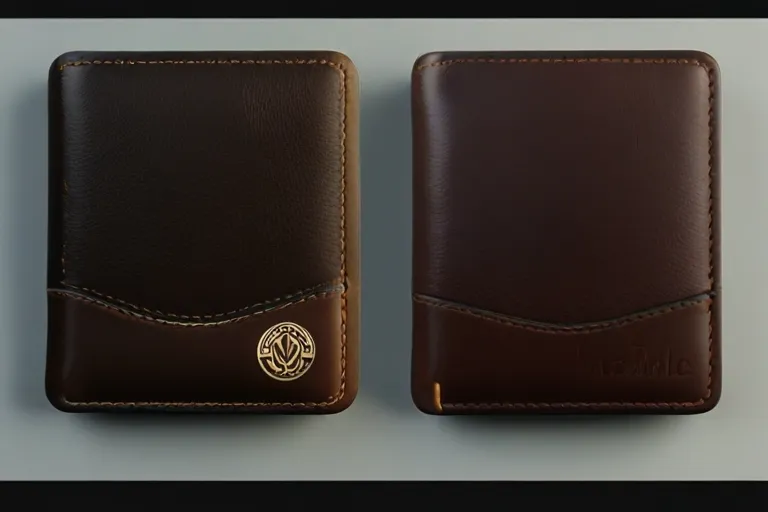
Exploration of Psychological Theories on the Symbolism of Empty Wallets as Gifts
Psychological theories offer insights into the symbolism and significance of giving empty wallets as gifts. From a psychological perspective, gift-giving involves complex processes related to emotions, intentions, and social dynamics. Presenting an empty wallet may reflect subconscious desires or fears about financial security or prosperity. Psychological interpretations explore how cultural beliefs and personal experiences shape attitudes toward empty wallets as symbolic gestures.
Understanding the Emotional and Symbolic Aspects of Gift Exchanges
Gift exchanges, including giving wallets as gifts, carry emotional and symbolic significance for both givers and recipients. The emotions evoked by receiving a wallet, whether empty or filled, can range from gratitude to apprehension depending on cultural context and personal beliefs. Symbolically, wallets represent tangible wishes for financial well-being and prosperity. Understanding the emotional dimensions of gift exchanges enhances our appreciation of the underlying motivations and meanings associated with the wallet as a gift tradition. Psychological perspectives shed light on the complexities of human behavior and cultural practices related to gift-giving rituals involving wallets.
Modern Views and Practices
Contemporary Perspectives on Giving Wallets as Gifts
In modern times, perspectives on giving wallets as gifts have evolved alongside changes in cultural norms and societal values. While some superstitions about empty wallets persist, many individuals approach gift-giving with a more nuanced understanding of symbolism and intention. Contemporary views emphasize personalization and thoughtful gestures when giving wallets, often incorporating practicality and style into the gift choice. Some may include a small amount of money or a symbolic token to convey positive wishes and avoid negative connotations associated with empty wallets.
How Attitudes Towards Gift-Giving Traditions Have Evolved Over Time
Attitudes towards gift-giving traditions, including presenting wallets as gifts, have shifted over time due to cultural influences and changing social dynamics. The evolution of attitudes reflects broader shifts in values, such as a growing emphasis on personal expression and meaningful connections in gift exchanges. As societies become more interconnected and diverse, individuals may reinterpret traditional customs and superstitions surrounding wallets, adapting them to contemporary contexts while preserving cultural heritage. Understanding these evolving attitudes provides insights into the dynamic nature of gift-giving practices and the enduring significance of the wallet as a gift tradition in modern society.
Conclusion
In conclusion, the belief in superstitions surrounding giving an empty wallet as a gift reflects deep-rooted cultural values and symbolic meanings attached to wealth and prosperity. Across cultures, empty wallets are often associated with financial hardship or negative energy, leading to taboos against presenting them as gifts. These superstitions highlight the importance of considering cultural sensitivities and beliefs when engaging in gift-giving practices involving wallets.
Understanding cultural symbols and traditions in gift-giving, including the symbolism of wallets as gifts, is essential for fostering meaningful and respectful interactions. By appreciating the significance of cultural beliefs, we can navigate gift exchanges with awareness and sensitivity, avoiding unintentional offense or misunderstanding. The wallet as a gift tradition underscores the rich diversity of human customs and the enduring impact of symbolism in shaping social interactions. Embracing cultural understanding enhances the authenticity and depth of our connections through the exchange of gifts.

